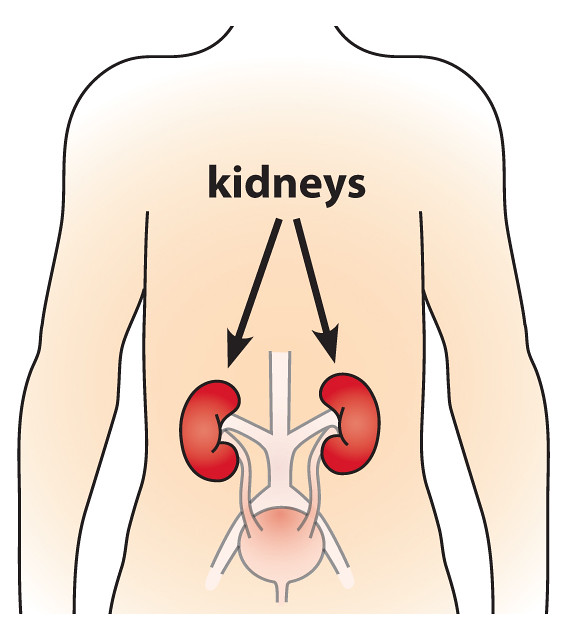Advil Liquigel
- Introduction to Advil Liquigel
- Composition of Advil Liquigel
- Uses of Advil Liquigel
- How Advil Liquigel Works
- Dosage and Administration of Advil Liquigel
- Storage and Handling of Advil Liquigel
- Possible Side Effects of Advil Liquigel
- Important Warnings and Contraindications
- Interactions with Other Medications
- Precautions for Safe Use
- Administration Considerations by Demographic
- Overdosage and Emergency Measures
- Handling Precautions and Disposal
Introduction to Advil Liquigel
Overview of Advil Liquigel
Advil Liquigel is a widely recognized over-the-counter analgesic known for its rapid pain-relieving properties. Unlike standard tablets, its unique liquigel formulation offers quicker absorption, making it an excellent choice for individuals seeking fast relief from various types of pain. This liquigel contains ibuprofen, a nonsteroidal anti-inflammatory drug (NSAID) celebrated for its dual pain-relieving and anti-inflammatory effects.
Purpose and Popularity of Advil Liquigel
Advil Liquigel has become widely favored by individuals of all age groups because of its effectiveness and dependability. It is recognized for its ability to relieve discomforts, like headaches, muscle aches, joint pain, and fever, making it a common item in households and workplaces alike. The practical liquid form makes it convenient for people to carry around for relief while also increasing its popularity and need.
Types of Pain and Symptoms Advil Liquigel Can Address
Advil Liquigel is effective in managing a wide array of pain symptoms:
- Headaches and migraines
- Muscular aches and sprains
- Arthritic pain and inflammation
- Fever associated with colds or other infections
- Menstrual cramps
This versatile medication offers substantial relief for both acute and chronic pain symptoms.

Composition of Advil Liquigel
Active Ingredients in Advil Liquigel
Advil Liquigels' main ingredient is ibuprofen, which is in each capsule and helps reduce the body's inflammation and relieve pain by targeting areas while also effectively reducing swelling.

Inactive Ingredients and Their Roles
The formulation contains active components that help preserve the capsule's stability and improve its absorption rate. These components include polyethylene glycol, sorbitol, and purified water, which ensure that the liquid retains its structure and quality.
Explanation of Liquigel Formulation and Its Benefits
The liquid form helps the body absorb ibuprofen more quickly than tablets can achieve that same efficiency level in the stomach upon ingestion; this rapid absorption is particularly beneficial for promptly addressing acute pain symptoms.
Naproxen vs ibuprofen
Naproxin (Aleve) has a shorter duration of action than Ibuprofen (Advil or Motrin), which offers pain relief.
Aspirin vs ibuprofen
Ibuprofen operates by lowering the levels of hormones that cause pain and swelling; on the other hand, aspirin acts as an antiplatelet agent that aids in averting blood clots from forming.
Meloxicam vs ibuprofen
Meloxicam and ibuprofen are commonly used to alleviate fever and reduce pain and inflammation in the body; however, meloxicam is known to be more potent in addressing these symptoms over a period of use than ibuprofen.
Advil vs ibuprofen
Advil is a trademark for the medication ibuprofen, that's also available as a drug.
Ibuprofen vs aspirin
Aspirins are sometimes used to manage heart issues and to reduce the risk of blood clots. In some cases of mild to moderate pain related to conditions such as arthritis or osteoporosis, doctors may recommend higher doses of ibuprofen.
Tylenol and ibuprofen
Tylenol (Acetaminophen) and Advil (Ibuprofen) are over-the-counter pain relievers that many people use to alleviate discomfort and aches in their bodies. They each belong to a category of pain-relieving medications—acetaminophen, which sometimes goes by the name APAP, is a standalone kind of pain reliever, whereas Ibuprofen falls under the group of nonsteroidal anti-inflammatory drugs (NSAIDs).
Acetaminophen and ibuprofen
A combination of ibuprofen, as a nonsteroidal inflammatory drug (NSAID), which helps with inflammation and pain relief, and acetaminophen for reducing pain and fever without causing dependency, with long-term use.
Prednisone and ibuprofen
Taking ibuprofen and prednisone at the same time can increase the risk of gastrointestinal (GI) bleeding, inflammation, ulceration, and perforation. Perforation is a potentially fatal condition that requires immediate medical attention.
Meloxicam and ibuprofen
Meloxicam and ibuprofen, a combination of NSAIDs, increase the chances of developing stomach ulcers and experiencing bleeding or kidney issues.
Tramadol and ibuprofen
Tramadol can be safely combined with ibuprofen for pain relief. However, a high dose, like 800mg of ibuprofen, could lead to stomach issues, like abdominal pain or reflux, if used over an extended period of time.
Gabapentin and ibuprofen
Gabapentin and ibuprofen do not have any documented interactions with each other; however, both medications come with side effects could pose risks when combined with drugs.
Cyclobenzaprine and ibuprofen
Its generally considered safe to combine ibuprofen with muscle relaxants such as cyclobenzaprine.
Uses of Advil Liquigel
Primary Indications for Advil Liquigel
Advil Liquigel is primarily indicated for:
- Quick relief from headaches, migraines, and muscle pain
- Reduction of inflammation in conditions like arthritis and joint pain
- Effective fever reduction
Pain Relief
Advil Liquigel offers effective relief from a variety of pains, including:
- Headaches and migraines
- Muscle pain due to strenuous activity or injury
- Chronic pain in conditions like fibromyalgia
Inflammation Reduction
As an NSAID, Advil Liquigel targets inflammation directly, making it suitable for individuals experiencing arthritis and other joint-related pain, helping them regain mobility and reduce stiffness.
Fever Reduction
Off-label Uses of Advil Liquigel
Menstrual Pain Management
Lots of people discover that Advil Liquigel is helpful for dealing with period cramps because it can lessen inflammation and ease the discomfort linked to pain.
Relief from Dental Pain
Treatment of Minor Injuries or Strains
Due to its anti-inflammatory properties, Advil Liquigel is beneficial for treating minor strains, sprains, and other injuries, helping reduce swelling and pain.
How Advil Liquigel Works
Mechanism of Action of Ibuprofen
Ibuprofen inhibits enzymes called COX-1 and COX-2, which are involved in the body's inflammatory response. By blocking these enzymes, Advil Liquigel reduces the production of prostaglandins, leading to decreased inflammation, pain, and fever.
How Advil Liquigel Specifically Targets Pain and Inflammation
The liquigel formula quickly releases ibuprofen into the bloodstream, allowing the medication to reach affected tissues faster and providing prompt relief from discomfort and inflammation.
Absorption Rate and Bioavailability of Liquigel Form
The liquigel format enhances the bioavailability of ibuprofen, meaning a higher amount of the drug reaches the bloodstream, making it more effective and faster-acting than traditional tablets.
Dosage and Administration of Advil Liquigel
Standard Dosage Recommendations for Adults
For adults, usually take one or two capsules every 4 to 5 hours as required. Do not exceed the recommended daily limit to avoid any negative reactions.
Ibuprofen dosage for kids
Based on weight recommendations, ibuprofen dosing suggests 2 to 5 mg per kilogram per dose administered every 6 to 7 hours. The highest recommended single dose is set at 400 mg. The maximum daily intake is limited to 40 mg per kilogram of body weight.

Maximum dose of ibuprofen in 24 hours
Take 200 to 400 milligrams by mouth every 4 to 6 hours as required, with a dose of 3200 milligrams for prescription strength and 1200 milligrams for over-the-counter use.
Adjustments in Dosing for Specific Types of Pain
For pain relief purposes the suggested starting dose is two capsules, with a subsequent maintenance dose of one capsule to sustain relief and reduce any side effects.
Alternating tylenol and ibuprofen
The effective method for switching between Acetaminophen (such as Tylenol) and Ibuprofen (such as Advil/Motrin) is to ensure a 3-hour gap between doses. For instance; if you consume ibuprofen at 6 am you can then proceed to take Tylenol at 9 am.
Guidelines for Taking Advil Liquigel with or Without Food
Advil Liquigel can be taken with or without food. However, taking it with food may help minimize potential gastrointestinal discomfort.
Ibuprofen on empty stomach
Its recommended to consume ibuprofen and other NSAIDs like aspirin with food or a glass of milk to prevent irritation of the stomach lining.

How to Administer Advil Liquigel for Maximum Effectiveness
For optimal results, it's advised to take the liquigel with a full glass of water, helping the body absorb it faster and improving the drug's efficacy.
Storage and Handling of Advil Liquigel
Proper Storage Conditions to Maintain Potency
Store Advil Liquigel in a cool, dry place away from direct sunlight. Heat and humidity may compromise the effectiveness of the liquigel formulation.
Shelf Life of Advil Liquigel
The usual duration, for Advil Liquigels shelf life is around 2 to 4 years when stored properly its important to check the expiration dates before using it.
Tips for Safe Handling and Disposal
Dispose of expired or unused liquigels responsibly to prevent accidental ingestion, especially by children or pets. Avoid flushing them down the toilet unless specified on the packaging.
Possible Side Effects of Advil Liquigel
Overview of Common Side Effects
While generally safe, some individuals may experience side effects, particularly if taking Advil Liquigel frequently or in higher doses.
Gastrointestinal Discomfort
Common side effects include mild gastrointestinal discomfort, such as nausea or upset stomach. Taking Advil Liquigel with food may help alleviate these symptoms.
Drowsiness or Dizziness
Some users may experience drowsiness or dizziness, so caution is advised when driving or operating machinery.

Mild Allergic Reactions
In rare cases, mild allergic reactions such as itching or rash may occur. Discontinue use and consult a healthcare professional if these symptoms appear.
Rare but Serious Side Effects
Gastrointestinal Bleeding
Prolonged use or excessive dosages can increase the risk of gastrointestinal bleeding, especially in individuals with a history of ulcers or other digestive issues.
Kidney or Liver Complications
High doses or long-term use may lead to kidney or liver complications. Regular medical monitoring is recommended for individuals requiring long-term pain management with Advil Liquigel.

Cardiovascular Risks
In rare cases, NSAIDs like ibuprofen have been associated with an increased risk of heart attack or stroke, particularly with prolonged use. Consult a healthcare professional if you have cardiovascular concerns.
Important Warnings and Contraindications
Individuals Who Should Avoid Using Advil Liquigel
Advil Liquigel, while effective for pain relief, is not suitable for everyone. Certain individuals should avoid its use due to potential adverse reactions:
- Allergy to NSAIDs or Ibuprofen: Those with known allergies to NSAIDs, including ibuprofen, should refrain from using Advil Liquigel to prevent serious allergic reactions such as anaphylaxis.
- History of Gastrointestinal Bleeding: Individuals with a history of stomach ulcers or gastrointestinal bleeding are at heightened risk, as NSAIDs can exacerbate these conditions.
- Severe Kidney or Liver Disease: Advil Liquigel may pose significant risks for those with impaired kidney or liver function, as these organs are responsible for metabolizing the drug.
Potential Risks for Specific Health Conditions
In certain cases, Advil Liquigel use can complicate existing health conditions. Individuals with cardiovascular issues, high blood pressure, or asthma should exercise caution due to potential complications. Always consult a healthcare provider before use if pre-existing conditions are a concern.
Warning Signs to Discontinue Use and Seek Medical Advice
Advil Liquigel use should be immediately discontinued if any of the following signs appear:
- Severe abdominal pain, bloody stools, or black, tarry stools
- Shortness of breath, chest pain, or any unusual swelling
- Signs of an allergic reaction, including hives, rash, or swelling of the face and throat
These symptoms indicate a possible adverse reaction, and prompt medical attention is advised.
Interactions with Other Medications
Common Drug Interactions with Advil Liquigel
Advil Liquigel can interact with various medications, leading to either reduced effectiveness or an increased risk of side effects:
- Blood Thinners and Anticoagulants: Combining Advil Liquigel with anticoagulants like warfarin can amplify the risk of bleeding due to ibuprofen's blood-thinning effect.
- Other NSAIDs and Corticosteroids: Using multiple NSAIDs or corticosteroids can intensify the risk of gastrointestinal bleeding and ulcers.
- Certain Blood Pressure Medications: Ibuprofen may decrease the efficacy of some blood pressure medications, potentially leading to elevated blood pressure.
Advice on Using Advil Liquigel with Supplements or Herbal Products
When taking Advil Liquigel alongside supplements or herbal products, consult a healthcare provider. Certain supplements, such as ginkgo biloba, may increase bleeding risk when combined with NSAIDs.
Precautions for Safe Use
Careful Administration Guidelines
Advil Liquigel should be used as directed and in the smallest effective dose for the shortest possible duration. Avoid doubling doses to compensate for missed ones, as this may increase the risk of adverse effects.
Monitoring and Duration of Use to Prevent Overuse
Long-term use of Advil Liquigel should be avoided due to potential organ damage, particularly to the kidneys and liver. For chronic pain, it is advisable to seek alternatives and discuss other pain management options with a healthcare provider.
Signs of Potential Complications and When to Consult a Doctor
If symptoms such as persistent stomach pain, dark urine, or yellowing of the skin appear, it may indicate complications associated with Advil Liquigel. Consult a healthcare professional promptly if these symptoms develop.
Ibuprofen and alcohol
Taking ibuprofen along, with alcohol may raise the chances of experiencing stomach irritation and discomfort as potentially affecting the effectiveness of certain blood pressure medications leading to a higher risk of bleeding when used alongside drugs, like warfarin.
Administration Considerations by Demographic
Administration to the Elderly
Older adults are more susceptible to adverse effects from NSAIDs like Advil Liquigel due to age-related physiological changes.
- Adjustments for Age-Related Sensitivity: Reduced doses may be recommended, as elderly individuals often require lower amounts to achieve therapeutic effects.
- Special Considerations Due to Comorbidities: Chronic conditions such as hypertension and heart disease are common among older adults, requiring additional caution when using NSAIDs.
Administration to Pregnant Women and Nursing Mothers
Advil Liquigel is generally not recommended during pregnancy, especially in the third trimester, as it can pose risks to the fetus.
- Risks During Pregnancy: NSAIDs may lead to complications such as premature closure of the fetal ductus arteriosus, making them particularly hazardous in late pregnancy.
- Safety Profile for Breastfeeding Mothers: While small amounts of ibuprofen may pass into breast milk, the levels are typically minimal. Still, it is recommended to consult a healthcare provider before use.

Administration to Children
Advil Liquigel can be used for children but with careful adherence to age-appropriate dosing guidelines.
- Appropriate Age Limits for Advil Liquigel Use: Ibuprofen products are usually recommended for children aged six months and older. However, consultation with a pediatrician is advisable.
- Dosage Recommendations for Pediatric Use: Dosing for children is typically weight-based, and it is crucial to follow specific guidelines to prevent potential side effects.
Overdosage and Emergency Measures
Symptoms and Signs of Advil Liquigel Overdose
An overdose of Advil Liquigel can lead to serious symptoms, including:
- Nausea, vomiting, or severe abdominal pain
- Breathing difficulties or wheezing
- Blurred vision, disorientation, or loss of consciousness
First Aid and Emergency Procedures
In the event of an overdose, immediate action is essential. If the individual is conscious, do not induce vomiting. Instead, provide them with water and contact emergency medical services or a poison control center without delay.
When to Contact Poison Control or Seek Medical Attention
If an overdose is suspected, it is critical to contact poison control or seek emergency medical care, even if symptoms are mild. Quick intervention can mitigate the potential for severe complications.
Handling Precautions and Disposal
Safe Handling Practices
Advil Liquigel should be stored securely to prevent accidental ingestion, especially by children. Avoid leaving capsules in open areas, as the attractive packaging may entice children.
Proper Disposal to Prevent Accidental Ingestion
Expired or unused Advil Liquigel should be disposed of safely. Avoid flushing them down the toilet; instead, use approved drug disposal methods or programs where available.
Environmental Considerations
Improper disposal of medications can lead to environmental contamination. Whenever possible, participate in medication take-back programs, ensuring the responsible and eco-friendly disposal of unused or expired medications.
Advil Liquigel FAQ
- Can ibuprofen help with sore throat?
- Can ibuprofen cause diarrhea?
- Can ibuprofen raise blood pressure?
- Can ibuprofen make you tired?
- Are ibuprofen and aspirin the same?
- Are ibuprofen and aleve the same?
- Are ibuprofen and tylenol the same?
- Where ibuprofen metabolized?
- When ibuprofen doesn't work for fever?
- When ibuprofen doesn't work for pain?
- When ibuprofen stops working?
- What ibuprofen is gluten free?
- What ibuprofen used for?
- What ibuprofen does to the body?
- What ibuprofen good for?
- How ibuprofen can you take a day?
- How ibuprofen know where pain?
- How ibuprofen is too much?
- How ibuprofen works in the body?
- How ibuprofen works?
- Will ibuprofen help a headache?
- Will ibuprofen help a toothache?
- Will ibuprofen help with an ear infection?
- Will ibuprofen help a uti?
- Will ibuprofen help a fever?
- Why ibuprofen is bad for you?
- Why ibuprofen with food?
- Why ibuprofen is contraindicated in pregnancy?
- Why ibuprofen over tylenol?
- Why ibuprofen makes me sweat?
- Can ibuprofen help with sore throat?
- Can ibuprofen cause diarrhea?
- Can ibuprofen raise blood pressure?
- Can ibuprofen make you tired?
- Are ibuprofen and aspirin the same?
- Are ibuprofen and aleve the same?
- Are ibuprofen and tylenol the same?
- Where ibuprofen metabolized?
- When ibuprofen doesn't work for fever?
- When ibuprofen doesn't work for pain?
- When ibuprofen stops working?
- What ibuprofen is gluten free?
- What ibuprofen used for?
- What ibuprofen does to the body?
- What ibuprofen good for?
- How ibuprofen can you take a day?
- How ibuprofen know where pain?
- How ibuprofen is too much?
- How ibuprofen works in the body?
- How ibuprofen works?
- Will ibuprofen help a headache?
- Will ibuprofen help a toothache?
- Will ibuprofen help with an ear infection?
- Will ibuprofen help a uti?
- Will ibuprofen help a fever?
- Why ibuprofen is bad for you?
- Why ibuprofen with food?
- Why ibuprofen is contraindicated in pregnancy?
- Why ibuprofen over tylenol?
- Why ibuprofen makes me sweat?
Can ibuprofen help with sore throat?
Yes
Can ibuprofen cause diarrhea?
Make sure to contact your physician if you experience any of these signs while using this medication: skin blistering or peeling off skin layers; feeling shivery; having cough or diarrhea; running fever; feeling itchy or experiencing joint or muscle ache; noticing red skin lesions or having throat; developing sores or ulcers; spotting white patches in your mouth or, on your lips; or feeling unusually tired or weak.
Can ibuprofen raise blood pressure?
Taking Ibuprofen (Advil) may increase your blood pressure levels, though the effect is typically minimal.
Can ibuprofen make you tired?
The typical adverse reactions associated with ibuprofen include headaches, feelings of dizziness and drowsiness, fatigue, and difficulty falling asleep peacefully.
Are ibuprofen and aspirin the same?
Although they share some similarities, they are also used for purposes to some extent. Aspirin could be consumed to manage heart ailments and avert blood clots. At increased amounts, Ibuprofen may be advised for addressing discomfort stemming from illnesses such as arthritis or osteoarthritis.
Are ibuprofen and aleve the same?
One key distinction between Aleve and ibuprofen lies in their duration of effectiveness; ibuprofen works quickly and is preferable for managing pain episodes, while Aleve is designed for long-lasting relief and is ideal for addressing ongoing health issues.
Are ibuprofen and tylenol the same?
Acetaminophen is effective in the brain area; on the other hand, ibuprofen acts on both the brain and the rest of the body. As a result acetaminophen aids, in alleviating pain and fever whereas ibuprofen offers an advantage by decreasing inflammation and swelling where an injury occurs.
Where ibuprofen metabolized?
Liver
When ibuprofen doesn't work for fever?
If ibuprofen isn't effective in reducing a fever's symptoms, it would be wise to seek advice from a professional.
When ibuprofen doesn't work for pain?
Suppose ibuprofen isn't cutting it for your pain or you require prolonged pain relief assistance. In that case, it's best to consult with your doctor for a prescription of a potent NSAID or a mix of medications that could offer better results in alleviating discomfort over time.
When ibuprofen stops working?
If you find that ibuprofen is no longer effective, it would be advisable to contact your doctor.
What ibuprofen is gluten free?
This product does not include any ingredients derived from grains that contain gluten, such as wheat, barley, or rye.
What ibuprofen used for?
People often use ibuprofen to fevers and alleviate pain and inflammation stemming from sources such as arthritis, menstrual cramps, and headaches.
What ibuprofen does to the body?
It hampers your body's capacity to produce prostaglandins, substances in your system that cause pain and generate inflammation. This results in reduced levels of pain sensation and decreased fever and inflammation.
What ibuprofen good for?
Ibuprofen is commonly taken to treat fever and to alleviate mild discomfort, such as headaches and muscle aches, resulting from various causes, like arthritis or menstrual periods.
How ibuprofen can you take a day?
Adults and teenagers typically take between 1200 mg and 3200 mg per day, split into three or four doses as recommended by healthcare providers. For children, the dosage is calculated based on their body weight. It should be determined by a doctor's guidance accordingly. The usual range is between 30 mg and 40 mg per kilogram of body weight per day, divided into three or four doses throughout the day.
How ibuprofen know where pain?
Ibuprofen attaches to pain receptors it encounters as it circulates in the body, acting on its target before carrying out its intended function within the cell to initiate reactions that lead to the desired outcome.
How ibuprofen is too much?
It's advisable for an individual to limit their intake of ibuprofen to no more than four doses within a 24-hour timeframe. Additionally, it's generally recommended not to use ibuprofen for pain relief beyond five days or for fever management beyond three days unless instructed otherwise by a healthcare provider.
How ibuprofen works in the body?
Taking ibuprofen affects the body's pain pathways by decreasing the production of prostaglandins, which cause pain and inflammation.
How ibuprofen works?
The body's pain pathways are affected by ibuprofen in a way that helps alleviate discomfort.
Will ibuprofen help a headache?
Taking either a 200 mg or 400 mg dose of ibuprofen orally has been shown to alleviate pain associated with headaches.
Will ibuprofen help a toothache?
Recent research indicates that ibuprofen provides relief for tooth pain, according to a study conducted on the topic.
Will ibuprofen help with an ear infection?
Using Ibuprofen can help alleviate inflammation and discomfort in the ears that stem from inflammation.
Will ibuprofen help a uti?
Taking ibuprofen (Advil ) can relieve the pain caused by a tract infection (UTl), but it doesn't treat the infection itself.
Will ibuprofen help a fever?
Ibuprofen, an inflammatory drug (NSAID) functions, by decreasing the hormones responsible for inflammation and pain, within the body.
Why ibuprofen is bad for you?
Ibuprofen and similar painkillers can lead to ulcers or bleeding in the esophagus (the tube connecting the mouth and stomach), as well as in the stomach or intestines.
Why ibuprofen with food?
You can choose to take ibuprofen with a meal or some milk to avoid any discomfort in your stomach.
Why ibuprofen is contraindicated in pregnancy?
Using ibuprofen during pregnancy is not recommended as it may lead to issues for both the baby and the infant.
Why ibuprofen over tylenol?
When dealing with inflammation-related pain, like arthritis, muscle strains, and menstrual cramps, ibuprofen is usually preferred over Tylenol (acetaminophen). Ibuprofen has anti-inflammatory properties and can also help lower fever levels. On the other hand, Tylenol is more effective for relieving pain such as headaches, toothaches, and overall aches and pains.
Why ibuprofen makes me sweat?
Ibuprofen may cause sweating as a side effect since it is an over-the-counter nonsteroidal inflammatory drug (NSAID) that can impact the brain areas responsible for controlling sweat production; this condition is referred to as drug-induced hyperhidrosis.
Can ibuprofen help with sore throat?
Yes
Can ibuprofen cause diarrhea?
Make sure to contact your doctor if you experience any of the following signs while using this medication: blistering or peeling skin; looseness of the skin; chills; cough; diarrhea; fever; itching; pain in joints or muscles; red skin patches; throat; sores or ulcers in mouth or on lips; white spots in mouth or, on lips; or unusual fatigue or weakness.
Can ibuprofen raise blood pressure?
Taking Ibuprofen (also known as Advil) can cause an increase in your blood pressure. The impact is typically minimal.
Can ibuprofen make you tired?
The usual side effects of ibuprofen include headaches and dizziness along with feelings of drowsiness and fatigue that may lead to sleep at times.
Are ibuprofen and aspirin the same?
Though they share some similarities, their purpose and usage vary slightly. Aspirins are typically recommended for heart conditions to prevent blood clotting, while Ibuprofen may be prescribed in higher doses to alleviate moderate pain from conditions such as rheumatoid arthritis or osteoporosis.
Are ibuprofen and aleve the same?
One key distinction between Aleve and ibuprofen lies in their duration of effectiveness; ibuprofen is designed for short-term relief of pain episodes, while Aleve is intended for lasting management of ongoing health issues.
Are ibuprofen and tylenol the same?
Acetaminophen primarily targets the brain for pain relief, whereas ibuprofen has action by addressing both brain-related discomfort and providing relief for inflammation and swelling throughout the body in cases of injury or inflammation.
Where ibuprofen metabolized?
Liver
When ibuprofen doesn't work for fever?
If ibuprofen isn't effective in reducing fever and bringing down the temperature as expected, it would be advisable to reach out to a professional for guidance and advice.
When ibuprofen doesn't work for pain?
If ibuprofen is not providing pain relief or you require long-term pain management support, it is advisable to consult with your physician. They can potentially recommend an NSAID or a combination of medications that may offer better efficacy in addressing your needs.
When ibuprofen stops working?
If you find that ibuprofen is no longer effective in relieving pain or discomfort, it would be advisable to reach out to your healthcare provider.
What ibuprofen is gluten free?
It does not include any components derived from grains that contain gluten, such as wheat, barley, or rye.
What ibuprofen used for?
People often use ibuprofen to lower a fever and alleviate pain and swelling associated with conditions like arthritis and cramps. It is also used for headaches.
What ibuprofen does to the body?
It limits your body's capacity to produce prostaglandins, substances that induce pain sensation and promote inflammation. This leads to a reduction in pain intensity, fever, and inflammation levels.
What ibuprofen good for?
Ibuprofen is commonly taken to treat fever. It also alleviates mild discomforts, such as headaches and muscle aches caused by various factors, such as arthritis or menstrual periods, as well as everyday issues, like the common cold or toothaches and backaches.
How ibuprofen can you take a day?
Adults and teenagers typically take between 1200 and 3200 milligrams of the medication daily, split into three or four doses throughout the day, as recommended by their healthcare provider. For children, the dosage is determined based on their body weight and should be decided by a doctor; it usually falls within the range of 30 to 40 milligrams per kilogram of body weight per day, spread across three or four doses.
How ibuprofen know where pain?
Ibuprofen attaches to pain receptors it encounters as it travels through the body. It can only start working once it successfully binds to these targets.The ibuprofen then penetrates the cell and initiates chemical processes that lead to the intended outcome.
How ibuprofen is too much?
Its recommended not to take, than 4 doses of ibuprofen within a 24 hour timeframe and to limit its use to 5 days for pain relief and 3 days, for fever unless advised differently by a healthcare provider.
How ibuprofen works in the body?
Using ibuprofen impacts the pain-related chemical processes in the body by decreasing the production of prostaglandins, which are responsible for pain sensation and inflammation reduction.
How ibuprofen works?
Irubofen interacts with the body's natural pain pathways.
Will ibuprofen help a headache?
Taking either 200 mg or 400 mg of ibuprofen orally can effectively alleviate pain caused by migraine headaches.
Will ibuprofen help a toothache?
A research report indicates that ibuprofen is more efficient in treating toothaches.
Will ibuprofen help with an ear infection?
Taking ibuprofen can help alleviate inflammation and discomfort in the ear, making it an effective solution for ear pain resulting from inflammation.
Will ibuprofen help a uti?
Taking ibuprofen (Advil ) can provide pain relief for a tract infection (UTD), but it does not treat the infection itself.
Will ibuprofen help a fever?
Ibuprofen is a type of inflammatory drug (NSAID). It operates by decreasing the levels of hormones that lead to inflammation and pain within the body.
Why ibuprofen is bad for you?
Ibuprofen and similar pain relievers can lead to the development of ulcers or bleeding in the esophagus (the tube connecting the mouth and stomach), as well as in the stomach or intestines.
Why ibuprofen with food?
You can take ibuprofen with a meal or some milk to avoid stomach discomfort.
Why ibuprofen is contraindicated in pregnancy?
Taking ibuprofen during pregnancy is not recommended as it may lead to complications for both the baby and the mother.
Why ibuprofen over tylenol?
When dealing with pain caused by inflammation, like arthritis, muscle strains, or menstrual cramps, ibuprofen is usually a better choice than Tylenol (acetaminophen). Ibuprofen works as an anti-inflammatory medication and can also help lower fever levels. On the other hand, Tylenol is more suitable for relieving pain like headaches, toothaches, and general aches and pains.
Why ibuprofen makes me sweat?
Ibuprofen can cause sweating as a side effect because it impacts the brain regions that control sweat production, a condition referred to as drug-induced hyperhidrosis.

















